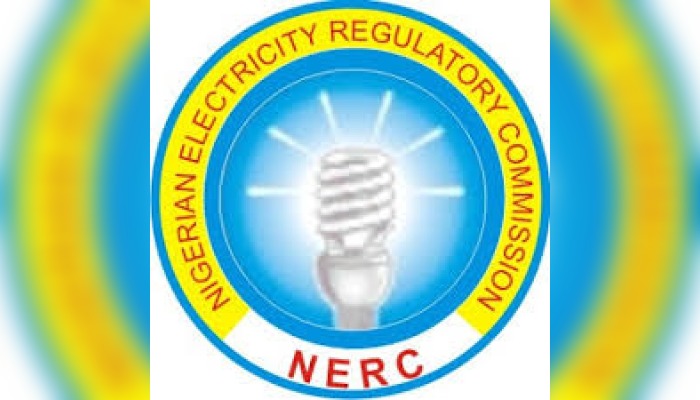NERC seeks policy framework to ensure effective use of $2bn fund in REA
The Nigerian Electricity Regulatory Commission (NERC) has called for policy rethink to ensure effective utilisation of the various funding pool including grants, and loans available to the Nigerian renewable energy space, through the Rural Electrification Agency (REA).
Musiliu Oseni, vice chairman of NERC made this call at the 20th anniversary of the Commission in Abuja on Thursday.
Oseni who emphasised the need for a deliberate policy by the federal government to strengthen the power sector, said that a substantial portion of the fund should be dedicated to providing end-to-end solution to the power supply challenges facing our industrial hubs.
The major components of pool of fund which has totalled over $2 billion is the $750 million World Bank-backed Distributed Access through Renewable Energy Scale-up (DARES) program, a $200 million fund from African Development Bank (AfDB), $190 million secured through the Global Energy Alliance for People and Planet (GEAPP), as well as ongoing negotiations with the AfDB and the French Development Bank for an additional $800 million package among others.
“There must be a deliberate policy by the FGN to power our industry for economic prosperity. You can power access through Mini-Grids but you can’t power your economy to prosperity. Thus, there is a need for policy rethink on the utilisation of the USD2bn currently available to the Rural Electrification Agency (“REA”). A substantial portion of the fund should be dedicated to providing end-to-end solution to the power supply challenges facing our industrial hubs,” he said.
Oseni said that there was need to increase investments in the transmission networks, adding that the commission will continue to focus more attention on unlocking private investments especially in the transmission segment of the value chain.
He also called for support from policymakers to bring to light the Transmission Infrastructure Fund (TIF) which he said the commission has created. He added that the nation’s fiscal realities have shown that the government alone cannot fund the gaps in the sector but necessary regulatory framework will go a long way in attracting private investments.
“Another key priority area is the continuous push for fiscal discipline and transparency at TCN. The Commission shall continue the regulatory process for the transition to bilateral trading, and handholding of the state regulatory commissions for capacity development.”
Speaking on the ongoing transfer of regulatory autonomy to state governments as a provided by Electricity Act of 2023, Oseni announced that 15 states have gotten their transfer order from the Commission. He said that while eleven of them have crossed the six months transitional period, only eight out of the eleven are currently operational.
“There is a vacuum in Edo, Ogun and Oyo states. I congratulate all the states that have operationalised their regulatory commission. However, I wish to advise our colleagues at the State Electricity Regulatory Commission to note that regulation is not populism, activism or politics, rather, it requires being objective, analytical, attention to details, having an independent mind and being able to see beyond the surface.
“You must constantly remember that there must be a utility before you can be called a regulator! While it is impossible to isolate yourself from the government (policymakers or legislature), always remind yourself of your roles as an unbiased umpire. I also urge you to avoid being in a compromising position with your licensees no matter the situation. This is necessary to avoid regulatory capture,” he added.
In his remarks, Adebayo Adelabu, minister of power stated that while states develop their markets, there is need to ensure a degree of standardisation and interoperability.
He explained that as provided by the Electricity Act, the states are empowered to leverage on their unique resources – be it solar, hydro, or wind, to build grids that serve their specific economic and social needs.
“Over these two decades, the Commission has laid the foundations of market stability – developing tariff frameworks, consumer protection mechanisms, and regulatory guidelines that have shaped our power sector’s evolution. The new structure presents a paradigm shift with immense opportunities, which we must strategically harness.
“This shift arrived with the Electricity Act of 2023, This Act, coupled with the prior constitutional alteration, represents the most profound change in our sector’s history. It effectively bifurcates constitutional responsibilities, demonopolising the electricity market and empowering State governments not just to generate, transmit, and distribute electricity within their territories, but to regulate their individual State Electricity Markets. This move from a single national grid to potentially multiple, integrated sub-national markets is a game-changer.
Read also: States lack resources to build electricity infrastructure – Adesina
“NERC’s ongoing efforts to Coordinate with state regulators, as seen in the peer-learning sessions with States and the transfer of oversight to a number of States, are exemplary and critical for national cohesion,” he said.
The minister, who was represented by Umar Mustaphar, a director in the ministry, said some stakeholders have proposed a strategic, city-by-city approach to achieving steady power, starting with state capitals by 2030.
Noting that this pragmatic model allows for measurable progress and demonstrates the tangible benefits of reform, building confidence for further investment and expansion, the minister said there was need for careful navigation.
“We must be mindful of the risks, including the potential for creating multiple, unsynchronised markets with conflicting regulations, which could confuse investors and strand power. The fragile national grid requires careful management to prevent fragmentation that could leave some regions behind.”

